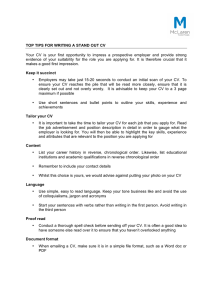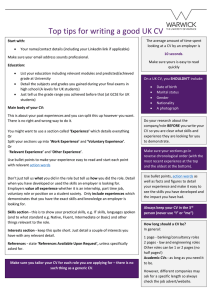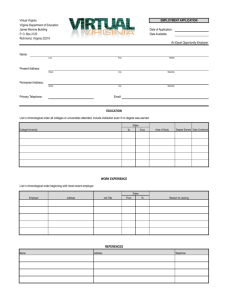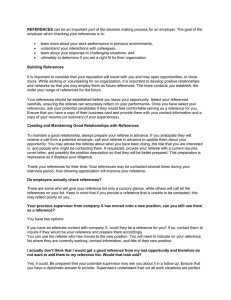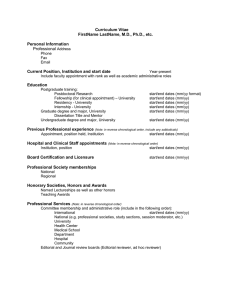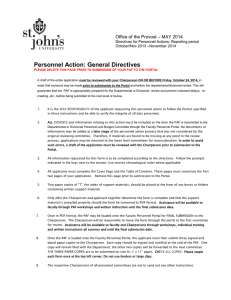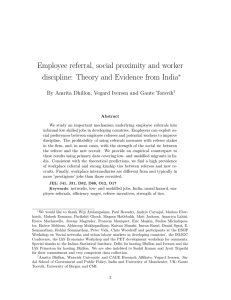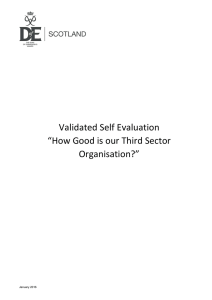What to include
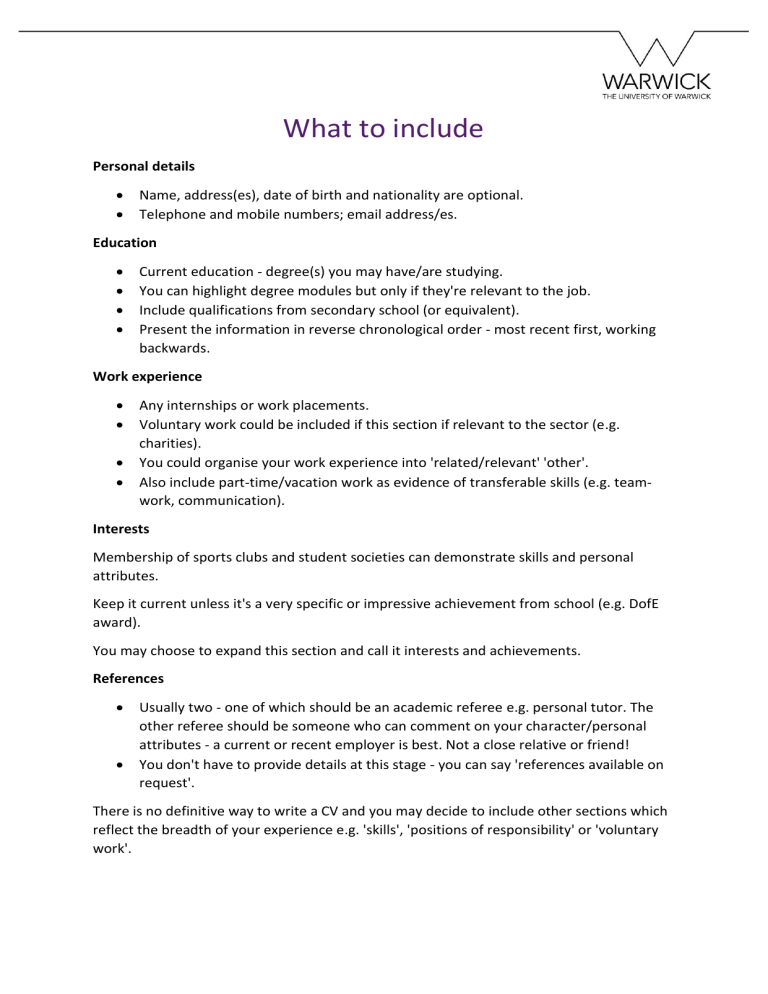
What to include
Personal details
Name, address(es), date of birth and nationality are optional.
Telephone and mobile numbers; email address/es.
Education
Current education - degree(s) you may have/are studying.
You can highlight degree modules but only if they're relevant to the job.
Include qualifications from secondary school (or equivalent).
Present the information in reverse chronological order - most recent first, working backwards.
Work experience
Any internships or work placements.
Voluntary work could be included if this section if relevant to the sector (e.g. charities).
You could organise your work experience into 'related/relevant' 'other'.
Also include part-time/vacation work as evidence of transferable skills (e.g. teamwork, communication).
Interests
Membership of sports clubs and student societies can demonstrate skills and personal attributes.
Keep it current unless it's a very specific or impressive achievement from school (e.g. DofE award).
You may choose to expand this section and call it interests and achievements.
References
Usually two - one of which should be an academic referee e.g. personal tutor. The other referee should be someone who can comment on your character/personal attributes - a current or recent employer is best. Not a close relative or friend!
You don't have to provide details at this stage - you can say 'references available on request'.
There is no definitive way to write a CV and you may decide to include other sections which reflect the breadth of your experience e.g. 'skills', 'positions of responsibility' or 'voluntary work'.
Top tips
Tailor your CV to the employer - some aspects of your experience will seem more or less relevant depending on the job/sector.
Provide specific evidence relating to the job and person spec.
Present your information (in all sections) in reverse chronological order.
Highlight your skills, but make sure you provide evidence and examples.
Do not exceed 2 pages. Some employers may ask for 1 page (e.g. investment banks) but you need to check beforehand. Don't send a 1 page resume style CV unless asked.
Format your CV to make it appear professional and credible. Use clear headings and a suitable font.
Be selective - a CV is a summary not an epic!
External links
Prospects: CVs and covering letters
TARGETjobs: the 6 step guide to perfecting your graduate CV
